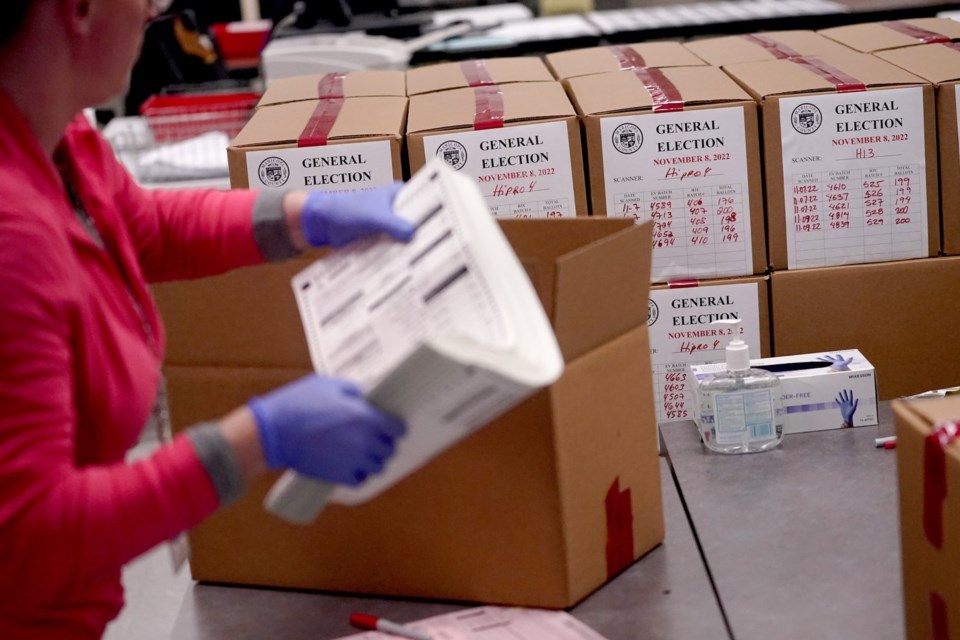WASHINGTON (AP) — Control of the White House and the narrowly divided Senate and House may hang in the balance on Nov. 5, but don’t expect election night to be all nail-biters and barn burners. Chances are some winners will be declared before a single vote has been tallied, just as the polls close in those states.
So what gives?
Although determining a winner before any votes have been counted may seem counterintuitive, race calls at poll closing time have been a routine part of election nights for decades, even though competitive, hotly contested races that can take hours, days or even weeks to decide tend to be the most memorable and attract the most attention.
The Associated Press will consider multiple factors and analyze available data before determining whether a winner can be declared when polls close in a given state. But the AP will never declare the outcome in a competitive contest before enough votes are counted to make the winner clear.
Uncontested races
Many of the races called just as the polls close are uncontested elections where only one candidate appears on the ballot and is therefore the only possible winner of the race. Voters in some parts of the country live in multimember districts for offices such as state legislature, where more than one candidate is elected in a district. In those districts, an uncontested race is one where the number of candidates on the ballot is equal to or less than the number of seats available in that district.
In the 2024 general election, the AP will declare winners in nearly 2,000 uncontested races, compared with about 4,500 contested races.
Noncompetitive contests
Sometimes it’s possible to declare winners at poll closing time in noncompetitive races with multiple candidates in areas where one political party has an established history of lopsided victories. In these cases, the AP will analyze multiple sources of available data, including the results of AP VoteCast, a comprehensive survey of both voters and nonvoters that determines who voted, how they voted and why, to confirm the outcome.
The AP will not call a race when polls close if AP VoteCast's results indicate a deviation from the state’s long-standing political trends and voting history. AP VoteCast results will be available for all 50 states, though only a small number will be considered as potential poll close calls. There is no AP VoteCast survey in the District of Columbia, so no contest there will be called when polls close even though the nation's capital has a long history of overwhelming victories for Democratic candidates.
A handful of states and districts have multiple poll closing times because they are in more than one time zone. In these cases, the AP will not declare a winner before the final poll closing time in that state or district. Florida, Texas and some others begin to release vote results from most of the state shortly after polls close in the earlier time zone. Votes that are already counted from areas in the earlier time zones will also be considered in determining whether a winner can be declared at the moment when the last polls close.
Other election data the AP takes into account include an area’s voting history from recent elections, voter registration statistics and pre-Election Day polling.
When the above data points confirm the expected result in a state where either major party has a history of dominating elections, the AP may call the race as soon as voting ends.
____
Read more about how U.S. elections work at Explaining Election 2024, a series from The Associated Press aimed at helping make sense of the American democracy. The AP receives support from several private foundations to enhance its explanatory coverage of elections and democracy. See more about AP’s democracy initiative here. The AP is solely responsible for all content.
Robert Yoon, The Associated Press




